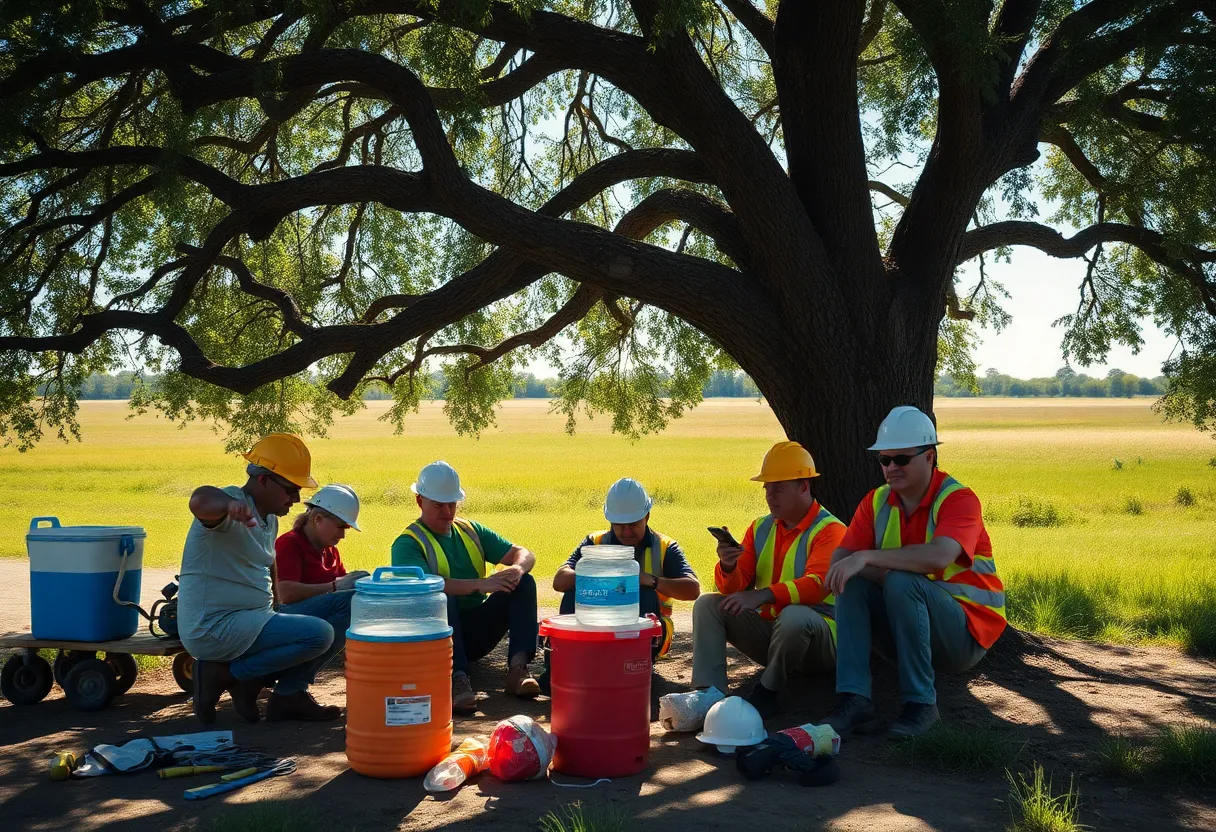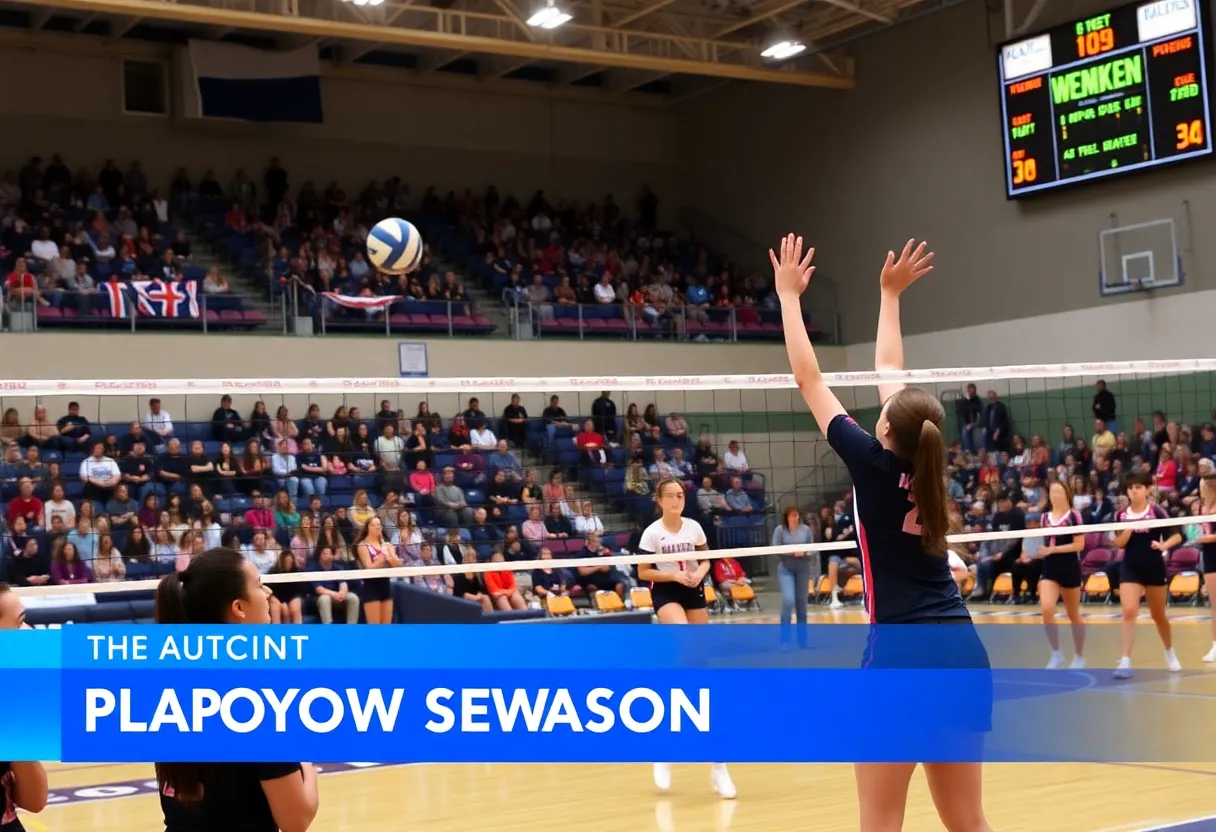News Summary
Federal officials are examining new regulations proposed by OSHA to enhance outdoor worker safety amidst extreme heat. These regulations aim to ensure employers provide essential protections such as water, shade, and breaks as temperatures rise. In Nevada, state-level measures have already been enacted, mandating safety plans for outdoor workers. The need for these regulations has grown as heat-related incidents increase, highlighting the importance of protective measures in the face of rising temperatures.
Las Vegas, Nevada — Federal officials are considering new regulations to improve outdoor workers’ safety during extreme heat
The U.S. Occupational Safety and Health Administration (OSHA) has completed public hearings on proposed national heat standards aimed at protecting outdoor workers from hazardous temperatures. As heatwaves become more frequent and severe, the potential regulations would mandate employers to provide essential protections, including water, shade, and rest breaks when temperatures reach certain thresholds.
Currently, the proposed regulations would require employers to implement these safety measures when outdoor temperatures hit 80 degrees Fahrenheit. Additionally, if the temperature rises to 90 degrees, companies would be mandated to offer paid 15-minute breaks every two hours to their workers.
Outdoor workers, such as landscapers, often experience sweltering conditions with temperatures soaring between 110 and 115 degrees. Malcolm Terry, a landscaper, represents many in this workforce who face extreme weather while performing their jobs.
Employers like Yellowstone Landscape, where Terry works, already adhere to strict safety protocols aimed at mitigating heat-related hazards. This includes mandatory breaks every two hours and weekly training to prepare employees for handling extreme heat conditions.
Supporters of the proposed federal regulations, including Michael Shohet, President of Compass Development, argue that national standards would help ensure all companies comply with crucial safety measures that protect workers.
Amid these federal discussions, Nevada has taken a proactive approach by enacting its own heat illness rule in April 2023. This state regulation requires employers to analyze heat-related risks and develop comprehensive safety plans for outdoor workers. Business owners are mandated to provide adequate water, training, emergency response plans, and cooling measures to safeguard their employees against heat illnesses.
In a noteworthy aspect of Nevada’s law, if federal rules are eventually approved, the state can continue enforcing its regulations as long as they prove to be equally effective. Nevada OSHA representative Victoria Carreón highlighted this possibility, indicating that the state is well-equipped to maintain its own standards.
OSHA is in the process of reviewing public comments resulting from the hearings, with a decision on the proposed regulations anticipated by 2026. In Nevada, community members are actively organizing initiatives to educate workers about their rights regarding protections against extreme heat. Notably, new regulations dictate that businesses with more than 10 employees must conduct job hazard analyses specifically related to heat illness.
The heat illness regulations ensure that workers receive timely access to water and breaks as soon as they show any signs of heat-related sickness. As a testament to the increasing urgency of the situation, extreme heat has been labeled a “silent killer,” especially as it disproportionately affects vulnerable populations in rapidly warming cities like Reno and Las Vegas.
Recent reports from Nevada indicate a marked rise in emergency room visits and heat-related illness complaints. In Clark County alone, over 500 heat-related deaths were recorded last year, underscoring the pressing need for effective safety measures.
Nevada stands out among states as one of the few with state-level OSHA safety standards addressing extreme heat protections. Currently, there are no federal mandates in place. The recently enacted state regulation was designed to be less burdensome for businesses while still ensuring robust protection for workers exposed to high temperatures.
However, it is important to note that workers in indoor climate-controlled environments are exempt from the newly proposed regulations, except in instances where their cooling systems fail or prove ineffective.
As the dialogue around heat safety regulations progresses, both employers and employees are urged to stay informed and advocate for a safer working environment as extreme heat continues to pose severe risks in the workforce.
Deeper Dive: News & Info About This Topic
HERE Resources
Las Vegas Celebrates Independence Day with Community Spirit
Las Vegas Issues Smoke Advisory for Fourth of July
Las Vegas Fire & Rescue Responds to Independence Day Emergencies
Las Vegas Faces Growing Homelessness Crisis Despite New Measures
Las Vegas Considers Tougher Laws in Response to Homelessness Crisis
Concerns Rise Over Lithium-Ion Battery Risks in E-Mobility
Nevadans Informed on Legal Rights Amid Protests
Las Vegas Faces Severe Weather with Flash Flood Watch
Elon Musk’s Companies Enjoy Regulatory Relief Under Trump
Las Vegas SeaQuest Faces Scrutiny Amid Bankruptcy
Additional Resources
- KTNV: New Federal Heat Protections Proposed for Workers
- Wikipedia: Occupational Safety and Health
- The Nevada Independent: Nevada Approves Rule Protecting Workers from Extreme Heat
- Google Search: Heat Illness Prevention Guidelines
- Las Vegas Sun: Nevada Faces the Heat with New Laws
- Encyclopedia Britannica: Heat Stroke
- Safety and Health Magazine: Enforcement of Nevada’s New Heat Rule Begins
- Google News: Outdoor Worker Safety Heat

Author: STAFF HERE LAS VEGAS WRITER
The LAS VEGAS STAFF WRITER represents the experienced team at HERELasVegas.com, your go-to source for actionable local news and information in Las Vegas, Clark County, and beyond. Specializing in "news you can use," we cover essential topics like product reviews for personal and business needs, local business directories, politics, real estate trends, neighborhood insights, and state news affecting the area—with deep expertise drawn from years of dedicated reporting and strong community input, including local press releases and business updates. We deliver top reporting on high-value events such as Electric Daisy Carnival, World Series of Poker, and Consumer Electronics Show. Our coverage extends to key organizations like the Las Vegas Chamber of Commerce and Three Square Food Bank, plus leading businesses in hospitality and entertainment that power the local economy such as MGM Resorts International, Caesars Entertainment, and Las Vegas Sands. As part of the broader HERE network, we provide comprehensive, credible insights into Nevada's dynamic landscape.



